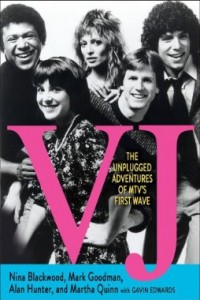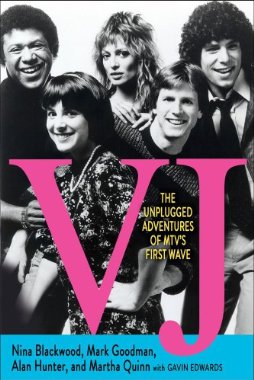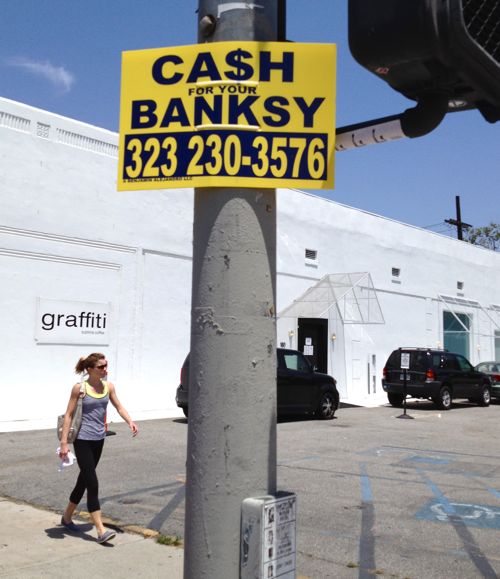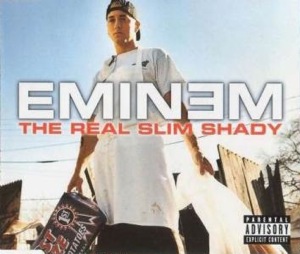Henry Bromell died on March 18, at the age of 65. About six months earlier, I had a long conversation with him; most of it never saw print, due to the exigencies of magazine journalism, but he was a fascinating man. Bromell wrote for many TV shows, including Homicide, Northern Exposure, Rubicon, and most recently, Homeland. (He also directed a couple of movies, wrote a bunch of books, and regularly placed short stories at The New Yorker in the ’70s). Homeland is how I met him–before the debut of the second season (not as good as the brilliant first season, but still thrilling), I wrote an article for Men’s Journal about the real-world sources of the show’s portrayal of life in the CIA and where the program diverged from reality; when I interviewed Howard Gordon, he graciously told me that I wanted to be talking to his fellow executive producer Bromell, whose father had worked for the CIA, and sent me upstairs to his office. I am pleased to finally share some excerpts from my conversation with Bromell:
Howard said, “Henry knows much more about this than I do–go talk to him.”
Only because I grew up in that world.
Well, tell me a little bit about your background.
My father was a World War II guy and was recruited by the CIA early on, by about 1950, and spent thirty years in there. So I grew up as the son of a guy who, it was kind of clear, didn’t really do what he said he was doing.
What did he say he was doing?
He’d be very vague about it. His cover would usually be something in the American Embassy–you know, secretary, undersecretary, second secretary of agriculture. Then you start to realize what it is–eventually he confesses and swears you to secrecy. So you think you’ve got this horrible secret: if you ever tell anybody, your father is going to die. Later he said, “No, I wouldn’t have died. All the bad guys knew who I was anyway, it just made it easier for me to live life if everybody at the cocktail party didn’t know I was a spy.” It was a strange childhood. I wrote a book about it called Little America. [The novel was published in 2002.]
What do you think the CIA culture is?
Well, it’s a different group now. I know a couple of people in it and they seem very similar to the older guys in the sense that they work ceaselessly: none of these people sleep. They know even more about how porous we are, so they sleep even less well than the rest of us. I know a bunch of guys who, before 9/11, were tasked with trying to figure out Osama Bin Laden. And once they really understood what they were dealing with, they knew something like 9/11 was going to happen. They weren’t sure what it was going to be, but they went to bed every night thinking, “Is tomorrow the day I’m gonna wake up and…?” And one day it was.
There are many more women in the CIA now than when my father was there. I mean, back then there were women in secretarial positions, some of whom were smarter than their bosses and really ran things. I saw that story a bunch of times. But officially, there were no women at all, and now half the officers are women.
Officers now try taking a different route home every night, carrying weapons sometimes. My father never carried a weapon and he never thought the Soviets were going to shoot him in Alexandra, Virginia. There were rules in the Cold War, and now we’re dealing with guys who don’t play by the rules. It’s quite incredible, in the Cold War, there are no stories of spies shooting other spies. If anybody starts shooting, then it becomes a shooting war, and that’s the one thing we’re trying to avoid. The guys they recruited and were running, they got shot, but the actual Soviet guys and CIA guys, no.
One of the things we find very interesting is the relationship between a CIA officer and the person that he/she recruits, which used to be the bread and butter of intelligence. In season two, we find out Carrie [Homeland‘s lead character, played by Claire Danes] once recruited a woman in Beirut. She found her going to the British consulate or American consulate every Sunday afternoon to watch the movies, which is where my father would sometimes recruit people. You start there. And the methodology would be that you’d play it so slow. Maybe two or three years before you even lay that card on the table.
Tell me something else from your childhood that ended up on the show.
We didn’t end up doing it, but we had written a scene where Estes, the boss, has to come in on a Sunday to do something and he brings his little kid in his Darth Vader outfit. It’s his week with the kid. And the network said, “They would never bring their kids in on the weekends.”
I said, “Oh yes, they would, and they still do.” I can’t tell you the number of times I got plopped in my father’s desk and was told to draw while he did something.
Was the polygraph episode [“The Good Soldier,” from Homeland‘s first season, scripted by Bromell] based on real life?
Oh, that’s a good example. Thank you. I knew about that because my father always had trouble with polygraphs. These guys have to get them periodically and they will be asked all these questions. When I’m talking to the people I know in the CIA now, at a certain point in the questioning, they say, “Okay, we should stop now–otherwise it’s going to be a bump on my next polygraph.” And some guys, like my father, are very bad at this. So it says you’re a traitor, and you’re not, of course.
In the real world, would Carrie’s medical issues [bipolar disorder] be disqualifying?
Yeah, they would be. So much is acceptable now, though. Depression wouldn’t stop you. I mean, half those guys, my father’s guys, were depressed. They’re the kinds of guys drawn to this world–it’s either the arts or spies. It’s like drinking too much: everybody drank too much. Now they’ve got medication, and there are shrinks that are part of the CIA. You can get a secure therapist.
What parts of the world did you grow up?
Athens, then Baghdad, then Amman, then Kuwait, then Cairo, then Tehran.
What was Baghdad like back then?
Oh, man. It was a qualitatively different world. As a kid, you drive from your grandma’s house on the North Shore of Long Island to Kennedy Airport, you get on Pan Am and leave, and then you arrive in another world, this medieval place–although there are cars. The smells are different, the language is different, and the minaret calls are so strange and sort of spooky, but beautiful. And it’s all about contact and noise and smells and no privacy. It’s quite a shock for a kid. We lived in a house right on the Tigris River, this big, beautiful old Turkish house with a courtyard and pomegranates and trees and the garden. I was, like, ten.
There was a revolution when we were in Baghdad [the 1958 coup] and we got evacuated out to Rome. I remember seeing guys shooting people–they had hangings every day and all the servants would go. I was in the kitchen one day and they were going to the hanging, so they said, “Why don’t you come with us?” I ran up to my mother, she was writing a letter at her desk, I said, “Mommy, Mommy, can I go to a hanging?” Wham. The one time she hit me. Those are words you don’t want to hear coming out of your nine-year-old.
When you’re older, you’re in college with a bunch of kids who grew up in Vermont or Scarsdale–they’re just sitting around talking about their favorite bad TV shows, and you go, wow, that was a different life.
posted 21 May 2013 in Tasty Bits, Unpublished. no comments yet
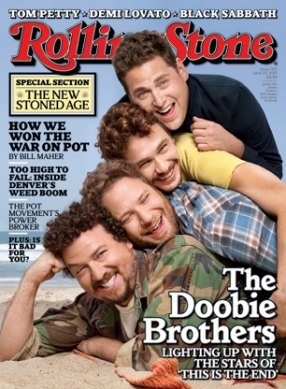 I don’t know when I’ve had as much fun reporting an article as I did hanging out with the Lonely Island for this Rolling Stone feature. When I asked where they wanted to meet, the answer was at the Universal Studios theme park, so they could go on the Transformers ride. Plus, we took in the Waterworld show, had fried chicken and beer, and generally had a kick-ass time. And as a bonus, they’re incredibly funny. I’ll post some outtakes soon, but until then, enjoy.
I don’t know when I’ve had as much fun reporting an article as I did hanging out with the Lonely Island for this Rolling Stone feature. When I asked where they wanted to meet, the answer was at the Universal Studios theme park, so they could go on the Transformers ride. Plus, we took in the Waterworld show, had fried chicken and beer, and generally had a kick-ass time. And as a bonus, they’re incredibly funny. I’ll post some outtakes soon, but until then, enjoy.
